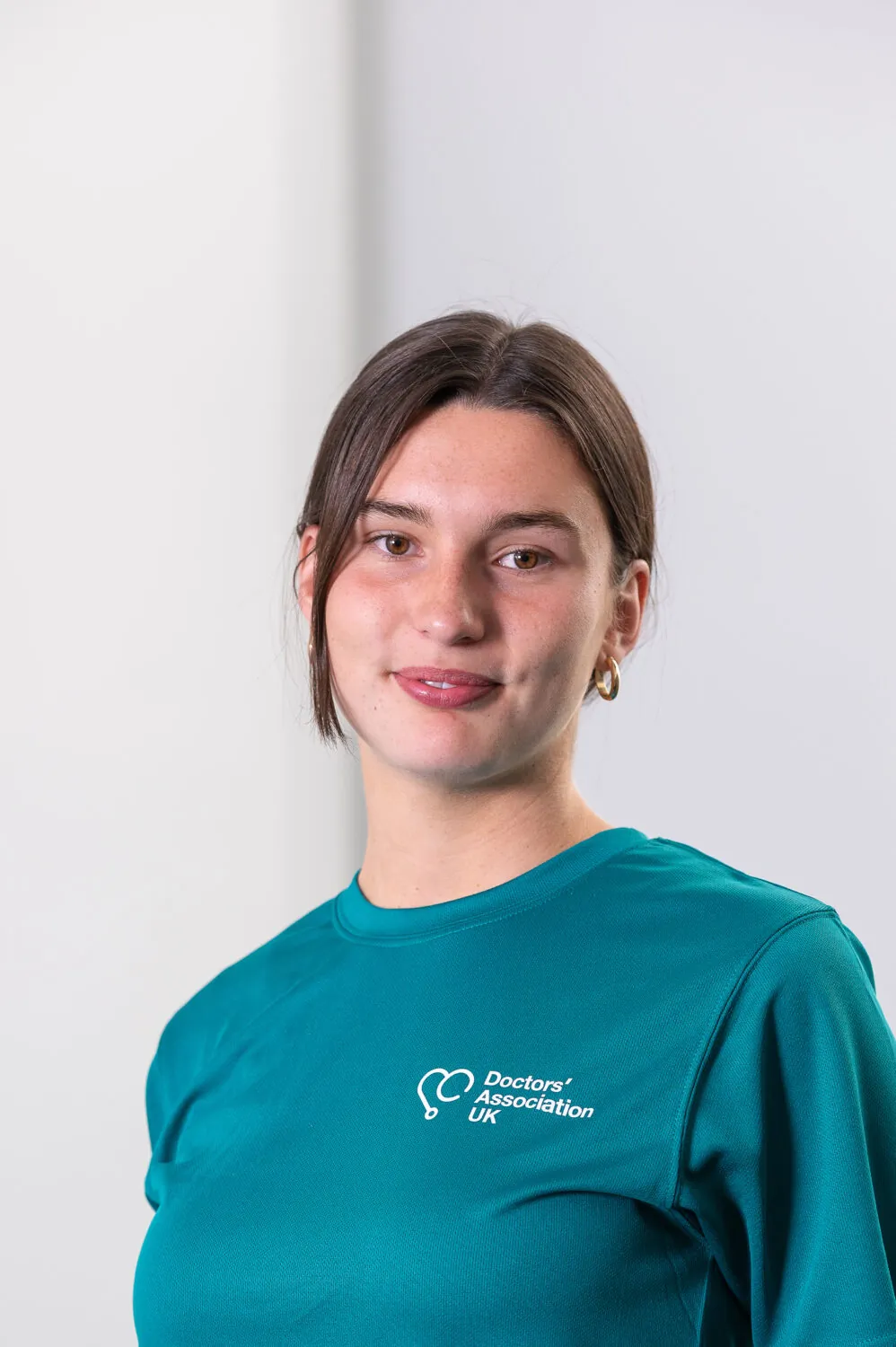DAUK Co-Founder Dr Samantha Batt-Rawden was asked to write an article for The Metro on how the NHS has changed over the past 10 or 15 years, and what the impact has been on doctors.
Sammy cites the blame culture, the pensions tax, the junior doctor contract and impossible workloads, amongst others, as key causes of rock bottom morale. She also warns that doctors may be suffering from ‘moral injury’ the psychological harm associated with witnessing sub-standard care due to the system we work in.
————
‘Would you choose medicine again?’ I look into the eager faces of the sixth-formers I’ve been asked to speak to. Not for the first time, I hesitate before I answer. I love my job – it’s a great privilege to be a Registrar in Emergency and Intensive Care Medicine. But there’s no doubt it’s hard. The specialities I’ve chosen to train in mean being there 24 hours a day, seven days a week, for our most critically unwell and injured patients. Many don’t survive their journey in intensive care. We do what we can to ease their suffering. Being human means that we often we take that suffering home.
These were struggles that I was prepared for. What I wasn’t aware of was how things would change over the 14 years I’ve been part of the NHS – and it’s these changes that have made it so much harder to do an already hard job. I graduated as part of one of the last cohorts of junior doctors who had onsite accommodation provided in England. I lived with three other new doctors, out of a group of 30 or so of us. None of us knew what we were doing. One day we were medical students, the next we were on call, looking after over 100 patients. We stumbled through it and learnt quickly. There was an unspoken camaraderie. No-one batted an eyelid if you staggered in after several days straight on call and needed to sleep for 24 hours or if you had been involved in an unsuccessful resuscitation and needed to offload in the middle of the night. We worked hard, but we were all in it together. Doctors started losing their physical spaces soon after that. Traditional doctors’ messes were closed to make way for office space. Gone were our on call rooms and canteens so there was nowhere for us to connect with our peers, get our heads down or grab a much-needed coffee after a stressful shift. I feel for our newest doctors who most desperately need those spaces – I’ve found more than one distraught junior doctor who has resorted to using a cupboard as a bolt hole.
Around the same time our medical family was also being disbanded. We used to work in ‘firms’ under a consultant, a team made up of very junior doctors through to senior registrars about to finish their training (still, perversely, called ‘junior’ doctors). That meant someone was responsible for you, had a vested interest in your training, and, if you were lucky, made sure you were fed. Sadly, that structure no longer exists. The reforms were pushed through in spite of widespread protests and mass resignations (as were the ruinous junior doctor contracts, enforced by Jeremy Hunt in 2016). It was a significant blow to our profession from which morale has never truly recovered. Doctors were no longer part of a team but just another number on the rota. We now rarely stay in one hospital more than one year. With little to no say in where they are moved to next, doctors often have to uproot their lives and their families every 12 months, to fill the gaps in their region. Even within that time doctors are shunted around departments every three or four months and – as of last winter – can now be moved around the hospital on a daily basis to work in specialties or wards they have no prior experience of, to cover gaps. If you’re thinking this doesn’t sound safe, you would be right.
Tragically, there have been a number of high profile cases of patients coming to harm, at least in part as a result of under-staffing and rota gaps.
Most recently, a junior doctor was convicted of gross negligence manslaughter following the death of a six-year-old boy from sepsis. The day the child died, the junior doctor was doing the job of several doctors at once, covering six wards, over four floors, without the supervision of the consultant who should have been there that day. The case was a lightning rod for a profession with already rock-bottom morale. For many doctors who had been working themselves into the ground trying keep patients safe, it was the final push they needed to hang up their stethoscopes for good. We probably do work fewer hours than before but 70 hour weeks are still not uncommon, and the workload during those hours has increased phenomenally. I can’t remember the last time I walked in to anything less than a four-hour wait to see a doctor over the winter. ‘Corridor medicine’ has now become the norm, with nurses being allocated to a stretch of hallway instead of a number of cubicles. It’s degrading for our patients, and the least safe option. The situation is hardly better in intensive care. While we have the beds, we don’t have the staff, meaning we have to accompany ventilated patients to other wards around the country that have the capacity. This combination of spiralling workloads and a decimation of morale and camaraderie has been toxic for our profession. Last year, 55 per cent of UK doctors met the criteria for burnout and ‘emotional exhaustion’, with one in five resorting to the use of drugs or alcohol as a ‘coping strategy’. It’s hardly surprising that we are haemorrhaging doctors out of the profession, and it’s only getting worse.
In 2018, just 38 per cent of second year doctors chose to continue their careers in the NHS and enter specialty training with the aim of becoming an NHS consultant or GP – compared to 83 per cent in 2010. This has been compounded by a crisis at the other end of a scale due to punitive pensions tax which has forced up to 69 per cent of consultants to cut their hours. This is a disaster. There is a desperate need for doctors across the whole of the NHS. I can’t blame those who walk away, but each colleague that leaves makes it harder for those of us who are left behind. It is increasingly recognised that what doctors may be suffering from is not burnout at all but ‘moral injury’, the psychological harm that occurs as a result of not being able to give patients the care that they need due to working in a broken system. The term came from the military and refers to veterans that were suffering low level trauma from seeing things which went against their ‘moral code’. For doctors, it’s witnessing substandard care and not being physically able to give patients the care they deserve. I used to walk up and down the trolleys lining the corridor in A&E, already run ragged, looking for that patient who couldn’t wait and knowing I would eventually miss something. It was enough for me to walk away from emergency medicine. I still don’t know if I will ever go back.
So, how do we fix this? First, we need to treat staff like human beings if we are going to have any hope of stemming the exodus of clinicians. It’s as simple as restoring some on-call rooms so we can get our heads down, and stop crashing our cars on the way home. Or it’s as basic as ensuring that junior doctors have leave for our own weddings. Honestly, at this stage, just letting us have access to now-outlawed NHS coffee overnight would be a significant morale boost. It’s not going to sort everything, but it might make it that tiny bit easier to do an increasingly tough job. If we don’t start looking after our doctors, we won’t have anyone left to look after our patients.
If we don’t start looking after our doctors there will be no one to care for our patients





